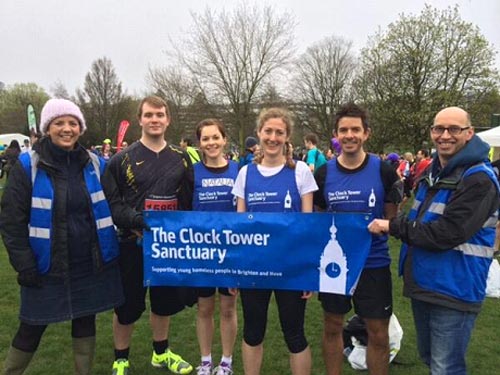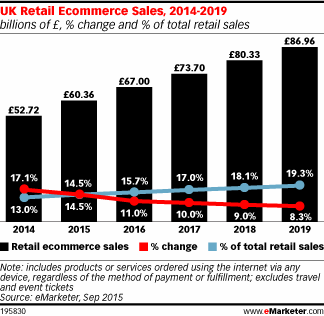As a recruitment agency the key objective of your digital marketing strategy is going to be increase your client portfolio and increase your candidates.
From working with recruitment agencies including Robert Walters and 15 Lexis Nexis job sites covering professional services recruitment and IT recruitment, to job board platforms such as Fish4Jobs there’s a huge wealth of untapped digital growth in the recruitment sector.

If you’re fed up with relying so heavily on job boards and are looking to increase your candidate applications and win some new clients, then these 6 digital marketing strategies can help you grow your recruitment firm.
1. Responsive Website
With more than 50% of traffic coming from mobile devices it’s essential that your website not only works correctly on mobiles, but downloads fast.
If it doesn’t you’re missing out on 1 in 2 visitors to your website, Google will be dropping you in the search results and you’ll also be frustrating your existing customers who may give up and go to a competitor.
You can check how well your website performs on mobiles with this free tool from Google:
https://developers.google.com/speed/pagespeed/insights/
2. SEO Audit
If your jobs are posted on your website then every job should have it’s only landing page with it’s own URL.
If it doesn’t you’re missing out on being found for every job search query in Google such as “{job title + location} jobs” e.g. “Magento developer in brighton jobs”.
If you’ve got the landing pages, a SEO growth opportunity for most recruitment agencies is to include relevant keywords and variations such as “vacancies” within your metadata so you make full use of the 60 character limit for title tags and 150 character limit for meta descriptions.
Additionally optimising your homepage for the type of recruitment you specialise in, along with your location will enable you to attract more clients looking for {recruitment agency specialism + agency + location} e.g. “Fintech recruitment agency London”.
3. Google Ads Campaign
Rather than just compete with everyone else on the job boards, you can also get your brand in front of candidates and clients when they’re searching on Google.
Pay per click ad costs can work out at from around 20p per click to over £3 per click so you do need to make sure your site already has Google Analytics conversion tracking in place to measure the success of any media spend.
With an average cost per click of the recruitment agency keyword research sample below of £1.30 per click, the following media spends would generate the following traffic direct to your website:
- £1,500 monthly media spend @ 1,153 clicks per month
- £5,000 monthly media spend @ 3,846 clicks per month
- £10,000 monthly media spend @ 7,692 clicks per month
| Keyword | Avg. monthly searches | Competition | Top of page bid (low range) | Top of page bid (high range) |
|---|---|---|---|---|
| charity jobs | 90500 | Low | £0.30 | £1.68 |
| recruitment agencies | 40500 | Medium | £1.00 | £3.22 |
| job agencies | 14800 | Medium | £0.44 | £2.01 |
| recruitment agencies near me | 12100 | Low | £0.87 | £2.58 |
| third sector jobs | 9900 | Low | £0.31 | £1.06 |
| it jobs | 8100 | High | £0.72 | £2.45 |
| marketing jobs | 8100 | Medium | £0.33 | £1.37 |
| job agencies near me | 6600 | Medium | £0.61 | £1.27 |
| temp jobs | 6600 | Medium | £0.22 | £0.82 |
| digital marketing jobs | 3600 | Medium | £0.75 | £1.59 |
| work agencies near me | 2400 | Medium | £0.43 | £1.21 |
| it contract jobs | 2400 | High | £0.66 | £2.40 |
| pr jobs | 1900 | Low | £0.36 | £1.20 |
| marketing executive | 1900 | Low | £0.22 | £3.79 |
| temp agencies near me | 1600 | Medium | £0.61 | £2.57 |
| it technician | 1600 | Low | £0.40 | £1.66 |
| it jobs near me | 1300 | Medium | £0.35 | £1.65 |
| digital jobs | 480 | Low | £0.35 | £0.99 |
You can run your paid media campaigns based on a cost per acquisition target
Recruitment agencies can estimate this through a simple calculation:
- Average value of candidate placement e.g. £10,000
- Number of candidate applications to generate each placement e.g. 1 in 25
- Target profit margin e.g. 50%
- Maximum cost per acquisition calculation = £10,000 / 25 * 50% = £200 CPA Target
So with this example, to generate enough candidates to make a placement at a 50% profit margin, you’ll need to acquire at least 25 candidates, so with your £200 CPA Target you’ll need a PPC budget of £5,000.
4. Indeed SEO
Love Indeed or hate Indeed, Indeed is the biggest job search engine in the world. The Indeed search engine model works in exactly the same way as Google. The only difference being, you can also manually add each job to the search engine.
If you’re finding that this is a huge drain of your time, it is also possible to get all your jobs from your website listed organically in the Indeed index. Just like getting found in the organic Google search results, your website needs to technically coded in the right way for Indeed’s crawlers to understand your job pages and automatically pull the content through into it’s database every time you add a job.

Indeed traffic will typically show in your Google Analytics reports as coming from referral traffic, even though it’s a search engine.
So if you’ve just launched a new website without a SEO migration and see your traffic drop it could be that your old site’s job pages were indexed in Indeed and now they’re not.
5. Indeed PPC
Never fear, if you find you’re in need of increasing your website’s job visibility in Indeed you can always turn to Indeed pay per click advertising.
Working just like Google Ads but in the Indeed platform, you pay on a pay per click basis to appear at the top of relevant keyword searches such as “digital experience director jobs”.
6. LinkedIn
As the largest social network for professionals, LinkedIn is a fantastic way of building relationships and growing your professional network.
You can list your jobs on your company page, you can connect with prospective clients and share regular updates, you can advertise your jobs to relevant job titles with LinkedIn advertising.
What is an often overlooked method of growing candidates on LinkedIn is providing them with a valuable resource, such as a gated invite-only community full of their peers. This LinkedIn strategy can be particularly effective for niche recruitment firms with highly skilled professionals in emerging fields such as data science and artificial intelligence.
However growing a community is a huge undertaking and requires a full pre-launch plan to build a following of professionals first. Followed by a launch promotion plan and ongoing nurturing plan, working with community ambassadors that post regularly and offer advice on topics that are of value.
The worst LinkedIn community strategy is to launch it and hope they will come.

The best way to kick off a potential private LinkedIn community is to start with a poll on LinkedIn to engage your existing company page followers to invite them to vote on the types of content they would like support with.
Then use these research insights to create a content strategy to support your community platform. By promoting your content across your social platforms and on your website you can increase community engagement over time and see your following grow.
In the future, as soon as you land a new placement opportunity, you can share with your community who can either apply for a relevant position or will refer you to someone in their network you’re not already connected with who the role would be perfect for.
Do let us know your thoughts on these digital marketing strategies for recruitment agencies, or if you’re keen to see which strategies would be best for you, please get in touch.

![Interesting Instagram Facts And Figures [Infographic 2021]](https://vermont-towns.org/wp-content/uploads/2021/04/interesting-instagram-facts-and-figures-infographic-2021.png)




